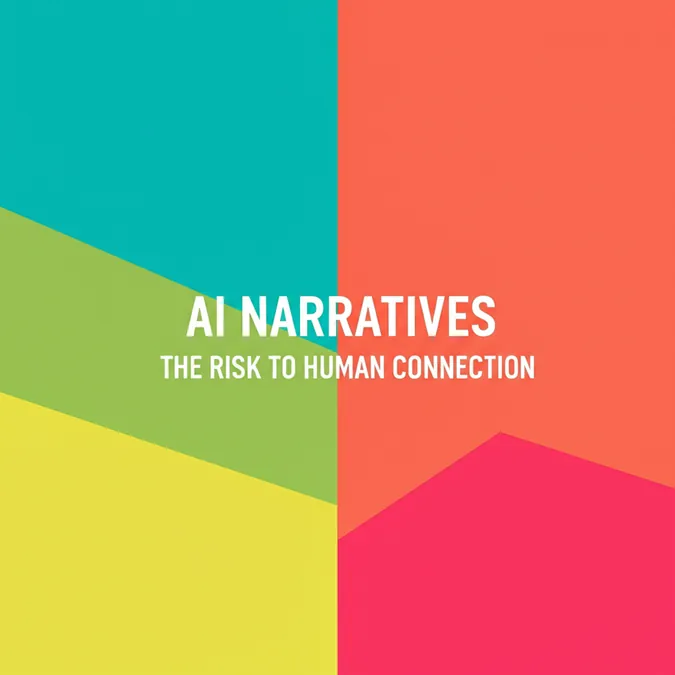Developer Offer
Try ImaginePro API with 50 Free Credits
Build and ship AI-powered visuals with Midjourney, Flux, and more — free credits refresh every month.
The Rise Of AI Agents And Your Business Future
 Shutterstock
Shutterstock
Futurist and former Google executive Steve Brown has shared insights into three significant waves of artificial intelligence that are on the horizon. These developments, he explains, go far beyond current AI tools like ChatGPT and are poised to impact various sectors, with real estate being a key area of transformation.
The Dawn of AI Agents Your Next Coworker Might Be a Machine
The phrase "the year of the agents" is taking on a new meaning, and it is not about the agents you might typically think of. Steve Brown, a respected futurist and former Google DeepMind executive, has cautioned industry leaders to prepare for collaboration with "AI agents." These advanced AI systems are designed to perform complex tasks, continuously learn, and adapt as they operate, marking a significant leap from simple prompt-based AI.
Brown predicts that the first generation of these AI agents will emerge this year. While they might not be perfect initially, their improvement will be rapid. He emphasized that individuals and companies poised for success will be "the ones that embrace them quickly." Brown further painted a picture of the future workplace, stating, "I think it is very real to say that your next co-worker might be a machine," one that operates on electrons rather than dollars.
In the real estate industry, AI agents are expected to handle tasks such as market research, managing listing updates, and scheduling property showings, as Brown mentioned at the T3 Sixty Leadership Summit. (Note: Real Estate News is an editorially independent division of T3 Sixty.) He also described a fascinating capability where AI agents could generate other agents to collaborate in "swarms" to tackle larger projects. "Anything your team does on a laptop, these agents will be able to do," he projected. "This is what the 'Year of the Agent' looks like."
Key Takeaways From the Coming AI Shift
To navigate this evolving landscape, Brown highlighted several crucial points:
- The era of "agentic AI" has begun, representing the initial move towards digital employees.
- Instead of feeling threatened by AI, it is time to explore its potential and allow it to streamline your work, effectively "taking the suck out of your job."
- Adapting to AI is an ongoing process, not a one-time task. Brown advises, "As AI evolves, your business will need to evolve with it - again and again."
Beyond ChatGPT Understanding the Three Waves of AI
Brown conceptualizes the current technological shift as the beginning of a new industrial era, driven not by steam or electricity, but by intelligence. This fundamental change, he argues, will send ripples through every industry, altering how businesses operate, how children are educated, how healthcare is managed, and indeed, how properties are bought and sold.
Alongside "agentic AI," Brown introduced "spatial AI," which concerns the AI's ability to perceive and interpret physical space. "This is not just about language anymore," Brown noted. "Spatial AI understands objects, rooms, even gravity. It can build 3D maps and interact with the world around it." Practical applications are already emerging, such as visual property scans, immersive 3D walkthroughs, and automated inspections. Major tech companies like Meta and Google are in a race to lead this field, along with companies specifically targeting the real estate sector.
Then there is "Physical AI," or intelligent robots, which are already performing tasks in warehouse environments. "These robots learn by example," Brown explained. "They watch a human, practice the task, and once one learns, they all know it." While physical robots might not immediately disrupt brokerage models, Brown urged leaders to view their development seriously as an indicator of the rapid pace of AI evolution.
He offered a striking perspective: AI today is "the worst it will ever be," underscoring the immense potential for growth and sophistication, so it is time to buckle up.
How to Thrive in the Era of AI A Guide for Humans and Businesses
The most critical action humans can take now is to learn through direct experience. Experiment with AI tools and engage with digital assistants. As Brown emphasized, ongoing adaptation is key: "As AI evolves, your business will need to evolve with it - again and again."
Business leaders face an imperative to start re-engineering their workflows. Brown recommended a task-by-task analysis, asking:
- Can this task be offloaded to AI?
- Can AI augment human performance in this task?
- Can AI extend human capability beyond what is currently possible?
"What will you do when you can hire digital employees and design them to be perfect employees and then scale them across your organizations?" Brown challenged. "What will that mean for your culture, for your organization, for the capabilities you need, for retraining your people, all of it?"
However, he stressed that AI is not merely a tool for cost-cutting. Its true potential lies in elevating human roles by freeing individuals from repetitive, low-value tasks. This allows people to focus on what matters most: strategy, building relationships, and fostering trust. "AI should take the suck out of your job," Brown said. "Let it handle the drudgery so humans can shine."
Looking to the future, Brown envisions a scenario where consumers might no longer manually browse listing pages or adjust filters. Instead, they will interact with an AI assistant that understands their needs, recommends suitable properties, and only involves a human agent when genuine trust and expert guidance are required. "People do not want to buy a home from a bot," Brown acknowledged. "They want a trusted advisor. But if that advisor is not using AI, they will lose out to someone who is."
Compare Plans & Pricing
Find the plan that matches your workload and unlock full access to ImaginePro.
| Plan | Price | Highlights |
|---|---|---|
| Standard | $8 / month |
|
| Premium | $20 / month |
|
Need custom terms? Talk to us to tailor credits, rate limits, or deployment options.
View All Pricing Details

